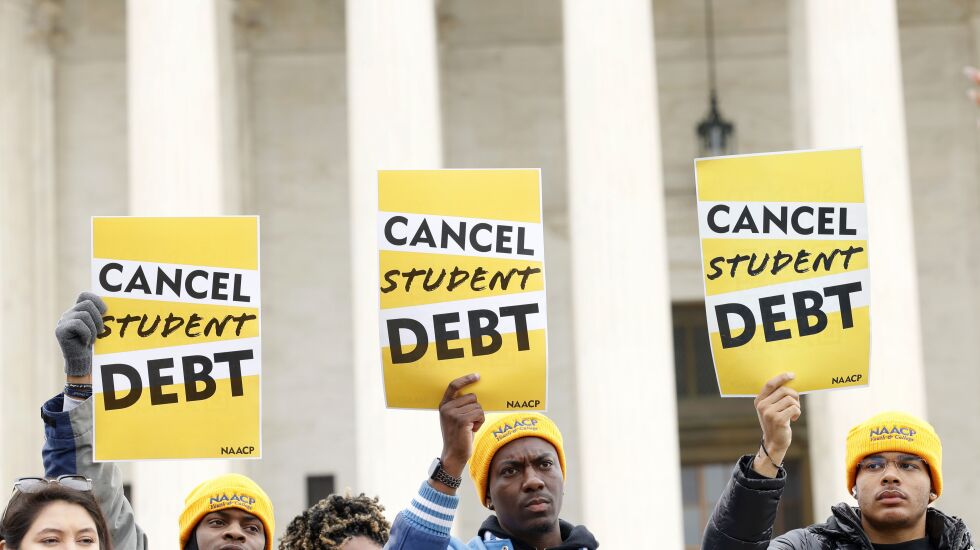
The financial freedom of our students, including future home ownership and the ability to invest in themselves and their communities, is hampered by an unsustainable amount of federal student loan debt. Cancel it all.
We are familiar with many of the benefits of a college degree, and they stretch far beyond greater job opportunities. At Noble Schools, a network of 18 public charter high schools open to all Chicago residents, we view college as our intervention toward creating educational equity.
We know that a bachelor’s degree opens doors to careers with higher wages and benefits, the foundation for social mobility. We also know these benefits include better healthcare which is tied to stable employment, and in turn, studies have shown that life expectancy also increases through educational attainment.
College graduates are also more engaged civically, helping to shape democracy with higher voting rates at every age group than their less educated peers. Lastly, college graduates, with their increased earnings, can build inter-generational wealth and even save for their own children’s college education.
The data agrees: Studies have shown that one of the ways to break the cycle of poverty is to graduate from college. This is why at Noble we are so focused on college.
And yet the data around student loan debt is staggering. More than one in five U.S. families holds student loan debt, with a disproportionate burden falling on Black and Brown families. Recent studies suggest that over 30% of Black families hold student loan debt compared with only 20% of white families, and with median balances over $30,000 vs $23,000 for their white counterparts. Over 36% of families in the bottom quartile of net worth owe a median of $32,000.
Canceling this student loan debt allows these families the ability to jumpstart their personal economy. They are able to save for educational opportunities for their own children, start businesses, save money to purchase a home and invest in their retirement savings.
The reality is the financial burden of pursuing a college education is not equal for everyone. Our higher education system is designed in a way that students from under-resourced communities have almost no choice but to borrow money if they want to go to college.
For people living in poverty to access social mobility, getting a college degree is more a necessity than an option. The different starting points between students with few resources who must borrow for their education versus students who had college savings accounts from the time they were born are simply inequitable.
In fact, almost 90% of borrowers who default on a student loan have also received a Pell Grant, meaning their family’s income and wealth was low when they entered college. The debt they are accumulating is then simply reinforcing the systemic barriers and existing economic inequities.
The students who were struggling financially before college often graduate and still struggle to repay the loans. When our graduates spend almost as much to repay loans as they are for housing, how can these gaps ever close? We must cancel federal student debt for all.
At Noble, we are committed to restorative justice for the Black and Brown students and communities we serve in Chicago. Our intervention to systemic inequity is college. We see college access as the most predictable pathway for Black and Brown children to access social mobility and be able to have an impact from within their communities.
This is why families choose to send their students to Noble Schools. They have dreams of seeing their children go to college, many times as the first in their families, and every year over 3,000 Noble students matriculate to college.
However, as a society, we need an additional intervention: canceling federal student debt. Decreased debt, not only from the cancellation of federal student debt but also more affordable educational options, coupled with access to quality employment opportunities, can result in building intergenerational wealth. We must set the bar at a more equitable state, so the multi-generational change we aspire to see through a college education can truly be possible.
Constance Jones is the chief executive officer of the Noble Network of Charter Schools, Illinois’ largest charter school network, and is the first African American and first female to hold that position.
The Sun-Times welcomes letters to the editor and op-eds. See our guidelines.
The views and opinions expressed by contributors are their own and do not necessarily reflect those of the Chicago Sun-Times or any of its affiliates.


.png?w=600)




